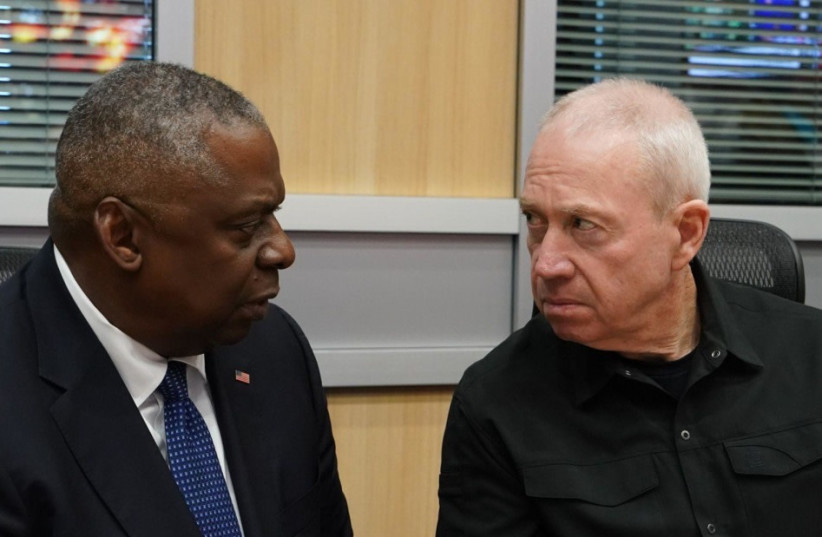The Biden administration asked Israel to update and hold consultations with the United States before any Israeli response to a potential Iranian attack, senior American and Israeli officials said.
The US intends to assist Israel in intercepting Iranian missiles and UAVs but is concerned that a sharp Israeli response will lead to a larger regional flare-up and attacks on American soldiers and bases in the region. As such, the US would like to have the opportunity to express opinions on the matter before any decisions are made, an American senior official said.
The Biden administration reportedly did not like the fact that Israel did not give the US sufficient advance notice before the attack that killed a senior Iranian Revolutionary Guards Quds Force commander in Damascus last week, even though the attack could have ramifications for American soldiers in the region.
The Washington Post reported Thursday that US Defense Secretary Lloyd Austin expressed his concern about the lack of communication with Defense Minister Yoav Gallant in a phone call on April 3.
In light of these recent developments, the commander of the US Central Command General Michael Erik Kurilla is still in Israel to coordinate a joint defensive effort with the IDF against a potential Iranian attack.

An American security official was quoted by Walla, saying “We are sending reinforcements to the Middle East to strengthen our deterrence efforts in the region and to give better protection to American forces.”
American Defense Minister Austin said in a telephone conversation with Defense Minister Gallant on Thursday that "Israel can count on full American support in defending Israel against attacks by Iran."
Gallant responded to Austin that "a direct Iranian attack would require an appropriate Israeli response against Iran."
Iran sends mixed messages
This week, Iran conveyed messages to the Biden administration through several Arab countries that if the US intervenes in the conflict between Iran and Israel, its soldiers and bases in the region will be attacked, three senior Israeli and American officials reportedly said.
The American officials stated that the Iranians conveyed a message according to which they consider the US responsible for the Damascus strike, due to the support they provide to Israel, and despite American attempts to distance themselves from the incident.
"The Iranian message was - we will attack the forces that attack us. Don't mess with us and we won't mess with you," said a senior American official.
A senior American official said that it was not clear from the Iranian message whether the Iranians are threatening to attack American soldiers and bases if the US helped Israel intercept an Iranian missile attack, or only if the US helps Israel in the counterattack.
According to the American official, the assessment in the American intelligence community is that Iran will react against American bases and soldiers only in the event of a joint Israeli-American attack against Iran.
Another senior American official said that the US and Iran maintain direct contact through an official communication channel managed by the Swiss government, which represents American interests in Tehran. The messages conveyed by the Iranians through the Swiss channel were more moderate than those conveyed through Arab countries.
The dual messages from Iran also stood out in the talks between the foreign ministers of Britain, Germany and Australia with the Iranian foreign minister on Thursday. During those talks, the Iranians signalled that their reaction would be limited in a way that would not lead to a wider regional escalation.
